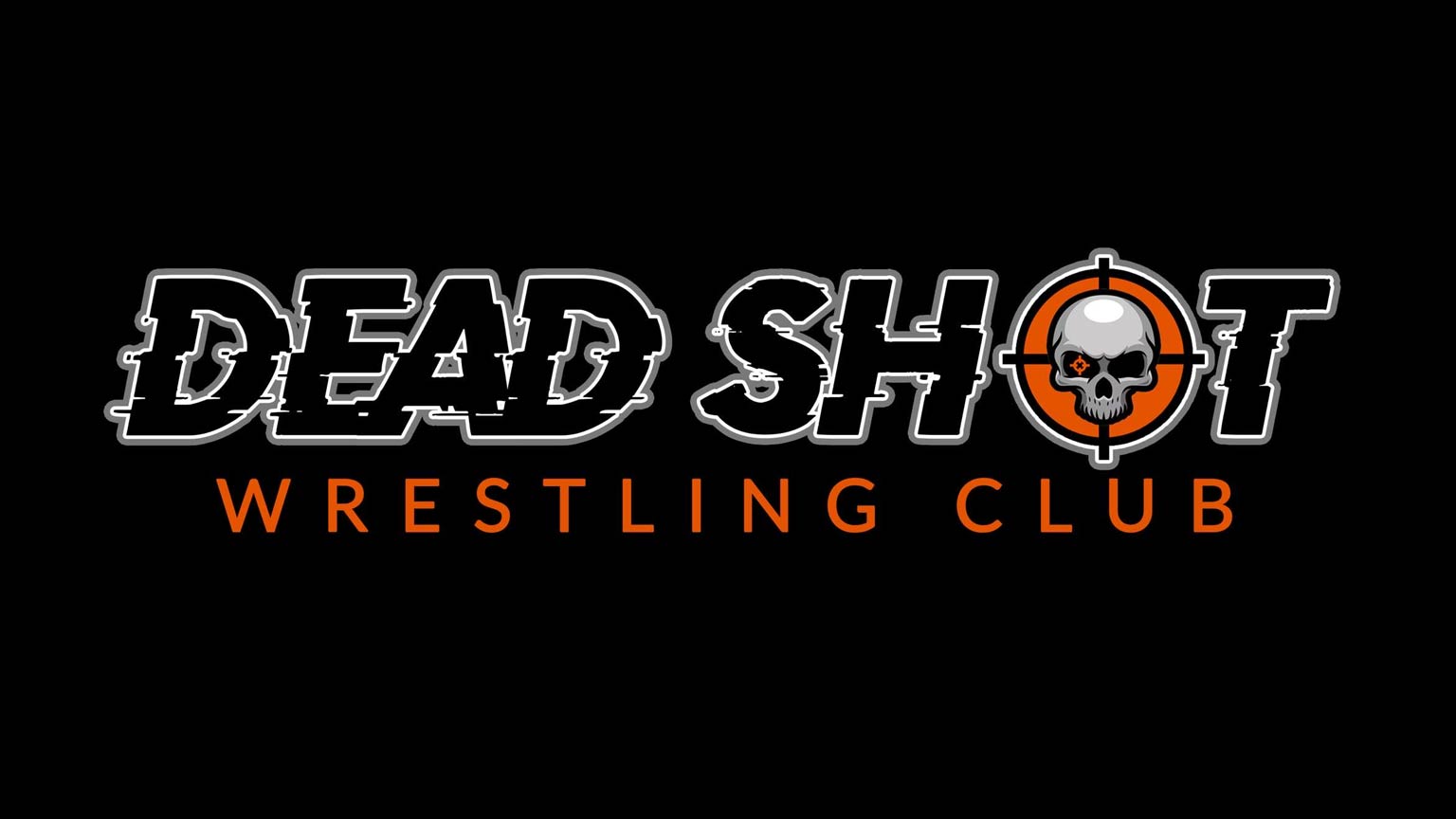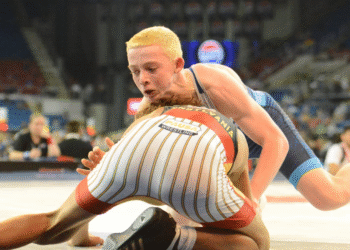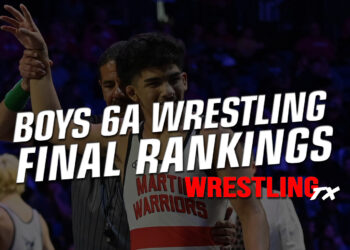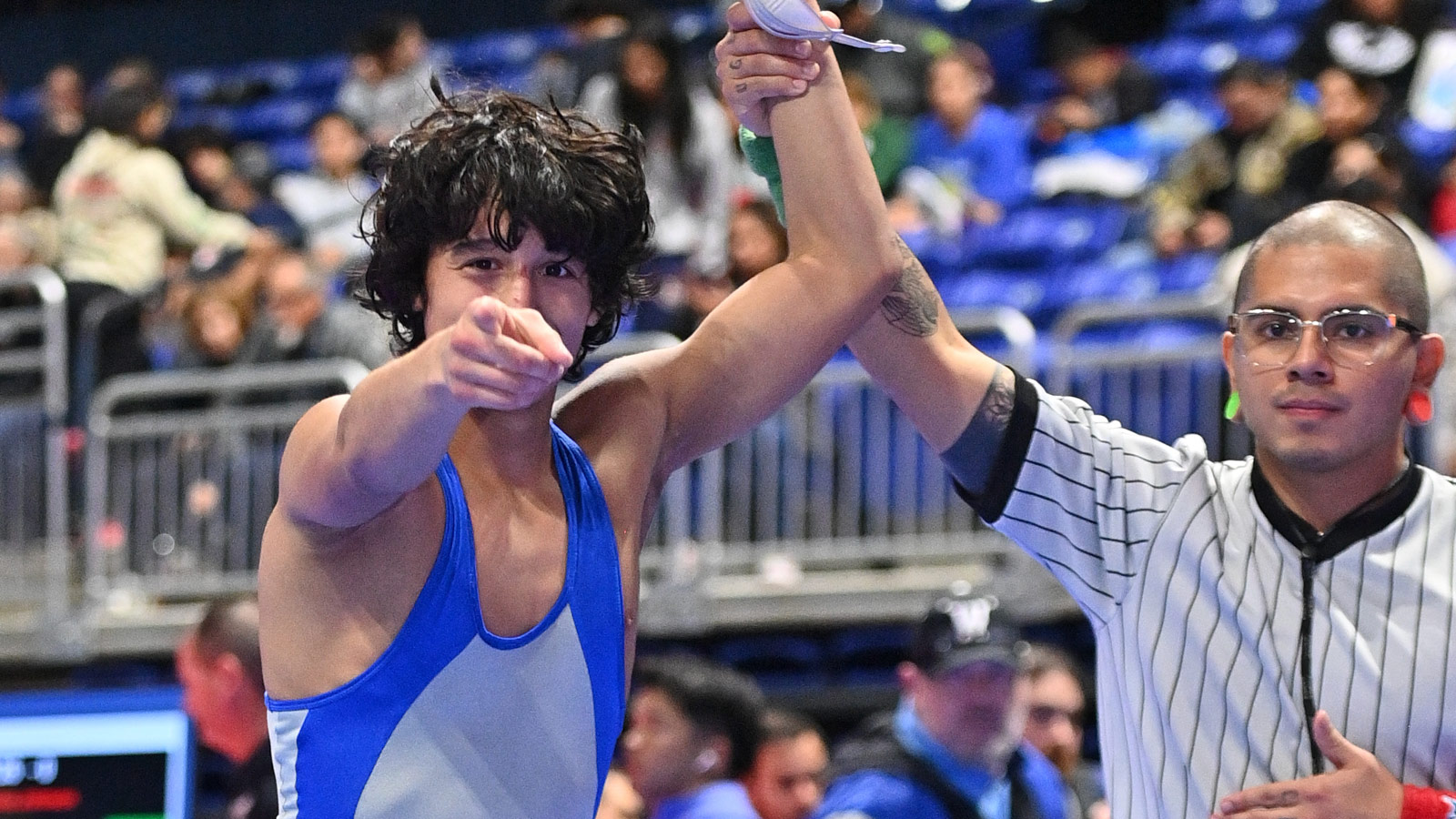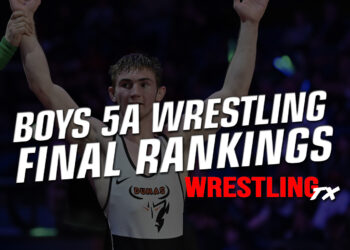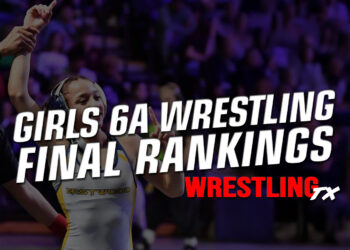Dead Shot Wrestling Club, a relatively new wrestling club in South Texas, participated in the Mid-Summer Mat Bash in Coppell late last month.
The program, run by Rudolfo “Rudy” Gonzalez, is open to wrestlers from Sharyland, San Juan-Pharr, Mission, McAllen, LaJoya, Palmview, Rio Grande City and Edinburg, according to its Facebook page.
Dead Shot finished first in the silver pool and 9th overall out of 32 teams in Coppell.
Gonzalez was a two-time state qualifier at Mission Veterans Memorial. He was a third-place finisher in 2011 and his only loss in his senior season was against Bo Nickal from Allen in the semifinals.
After that season, Gonzalez went to St. Charles, Missouri, to wrestle at Lindenwood University starting in the 2011-12 season.
So, how long have you guys had the wrestling program?
This is going to be our third year going into the fall of 2025.
Where are you based?
We’re based out of Alton, Texas, a small town in south Texas; we’re like a border town. We probably have 80 kids in our club. As I said, we have our youth club. It’s youth members up to high school. So we’re growing, but we’re getting there. We’re gonna try to compete with these schools and these clubs upstate.
I was talking to Zion (Vazquez) and he mentioned you don’t have a lot of UIL state experience and state medalists. But he said you are helping build that. You have to start somewhere, right?
Yes, sir. We had Ethan Gonzalez, he’s only a sophomore and he broke through this year and got 6th as a sophomore. So usually, like, our kids from the Valley don’t really medal until senior year. They don’t have the exposure like these other kids from Austin, Dallas, El Paso area have, you know? So for us, it’s hard to travel, so we try to. Like I said, we have so much talent back home. It’s just hard for us to travel. And the rest of Texas doesn’t get to see it.
For you guys, what’s the goal? Or what got you motivated to start this club?
I spent some time in Missouri. I went to Lindenwood University, wrestled out there and I was gonna stay out there. And I was like, ‘Man, I’m gonna move back home and try to help the rest of the community back there.’ So I thank God for my parents. My parents helped me out. They helped me build up the club. They helped me out with everything else. Also very grateful for the support. Honestly, I’m super grateful for the family support we have. You know, we have a lot bought in, families that are willing to travel, spend the money and and commit to wrestling. Football … football is big in Texas, especially back home in South Texas, but it’s awesome when you see families commit to wrestling. You know, it builds great characteristics. Even if you don’t become a state champion, you’re gonna build some great characteristics and habits that’re gonna help you and build you for the rest of your life. Our goal at home: we want to have fun and build champions. We love wrestling, but we want to win.
What did being in Missouri mean?
I got to know Cody Brewer and his brother Dustin is at Liberty. They’re hammers. But I miss St Louis. I miss the culture there, but it’s gonna be back home in South Texas and trying to build that same culture, or even be back home. It’ll take some time. But like I said, with family support bought in, kids and we have a good culture.
(The roster for the Lions that year included several future assistant or head wrestling coaches: Columbia Hickman grad Aerdryan Cox became the head coach at DeSmet Jesuit, though some may be more familiar with his little brother, J’den Cox; Craig Chiles, from Hillsboro, was the Combat World Wrestling 68kg Champion in 2016 in Turkey and was an assistant at Sunnyside High School in Tucson; Spenser Daniels, went back to coach at his alma mater, Nevada; Hannibal’s Jacob Janes is currently a college assistant coach at King’s College in Wilkes-Barre, Pennsylvania; Jake Landals is the head coach at Paducah Tilghman High School in Paducah, Kentucky; Corey Duncan is now the head coach at Weatherford High School in Weatherford, Oklahoma; Kyle Webb is an assistant wrestling coach at Francis Howell; Derrick Weller would become an assistant at Lindendwood before the program was shutdown and later coached the United State Military Academy Preparatory School team and West Point Wrestling Club; assistant coach Jimmy Rollins is now the head coach to Clearview High School in Mullica Hill, New Jersey; then-grad assistant Andrew Bradbury coached Chaparral High School head coach in Las Vegas and is now the head coach at Hanover Central in Cedar Lake, Indiana and the other grad assistant, Matt Cauley, once was an assistant coach for men’s and women’s wrestling at Missouri Baptist)
What was it like at Lindenwood? Did it help you get you where you are now?
My mentor, Joe Parisi. He’s at Missouri Valley now as the president. But he’s my mentor and I owe a lot to him. Joe is an awesome person. He was the coach for multiple years at Lindenwood and he recruited me. Then, when I was there, he went to Missouri Valley. I still keep in touch with him today. He’s a great man and he taught me there is more than wrestling. The sport teaches you how to be a good human being.
What was it like going to wrestle in college?
There aren’t a lot of kids that break through and go, especially D1. I have a lot of kids that I say you can go D1 or go D2; you’re good enough, but you’ve got to expose yourself. You’ve got to go out there, get exposure, and go to the national tournament so the coaches can see you. You guys have good skills, you just have to get out there so they can see you. They ask questions and I tell them that you’re good enough. You just got to have someone to tell them they can do it. You know, they need someone who can believe in them.
From your time at Lindenwood wrestling to coaching now, how much has wrestling changed in Texas?
Overall, I mean it’s naturally getting better. I think we’re getting more kids to the D1 level. We’re getting more kids in Fargo and all that stuff. Texas is, for sure, getting better. Like I said in Missouri, teammates were talking crap. They’re like Texas is like the bottom of the barrel. Or you guys have wrestling over there, I thought you just had football. You’re talking Texas wrestling, you talk about Brandon Slade, Bo Nickal, Tamyra Mensah-Stock, Tervel Dlagnev. I told the kids it’s been done. We have Olympians. We have an Olympic champ in Tamera Mensa. Henry Cejudo, a Mexican-American from Arizona. You know, poor family. Illegal immigrant mom. I have a lot of those kids at home; they come to come from these troubled households or difficult situations, and they can still do it, man, they can still do it. They just need a good opportunity. They just need good coaching, good mentors and good family supporting them. These kids can do … we’ve got to give them the good opportunities to get there.
How much does this kind of tournament and seeing these teams from Dallas help?
You have some of the best in Allen and Arlington Martin. Honestly, I told our kids, that’s who you have to beat if you want to be a state champion. Like I said, we want to come up here as much as possible to compete with those guys. You know, we want to wrestle. We want to wrestle 10 times a year for competition. You know, it’s hard for us to travel and stuff.
What did your team gain from this tournament?
It’s an eye-opener. You know you never know what you gotta work on or fix it until you go and expose yourself. That’s why I told my kids, ‘Go get exposed.’ Staying back at home is not gonna get you any better. Like I said, travel to Dallas, travel to Oklahoma, travel to a national tournament to see what you really are.
For these kids, for them to lose now, how much is that gonna help them later on?
Oh, it’s gonna help you so much. Sometimes you a kid takes a loss, you know, he puts his head down. But it really shows them what they have to work on. It builds motivation; it’s just more fuel for the fire. For me, as a coach, I don’t want an undefeated kid. I want him to be exposed. I want to do some matches so you can see what he has to work on. You know, those things, you know? So I’d rather have a kid with a 40-2 record and those two, those two losses are to a multiple-time champion or a nationally-ranked kid, you know, to really feel that.
To see the growth of the program for the last couple of years, what is it like?
It’s so awesome. There are a couple, like, two or three clubs back home. But like I said, we made our club. We make a big commitment to travel as much as we can. Even our youth, like our little elementary kids, go to at least 10 tournaments a year. We go to all the Ironman tournaments. We go to Austin, we go to Dallas. You know, we commit. I really believe the youth. The kids we have in our program are going to change the landscape of South Texas wrestling. They’ll really show some, but they’re gonna medal. They’re gonna medal early. Hopefully, get on the world teams. That’s what we’re working for.
Your dad told me you only lost once in your senior year of high school. Want to talk about it?
Yeah, I lost to Bo. My kids give me crap, give me trouble all the time. They’ll wear Bo Nickal shirts. They’ll put on a Bo Nickal video. They’re like, ‘Coach, look at this.’ But I’m grateful for that battle I had with him and everything. It made me a better person, you know.


